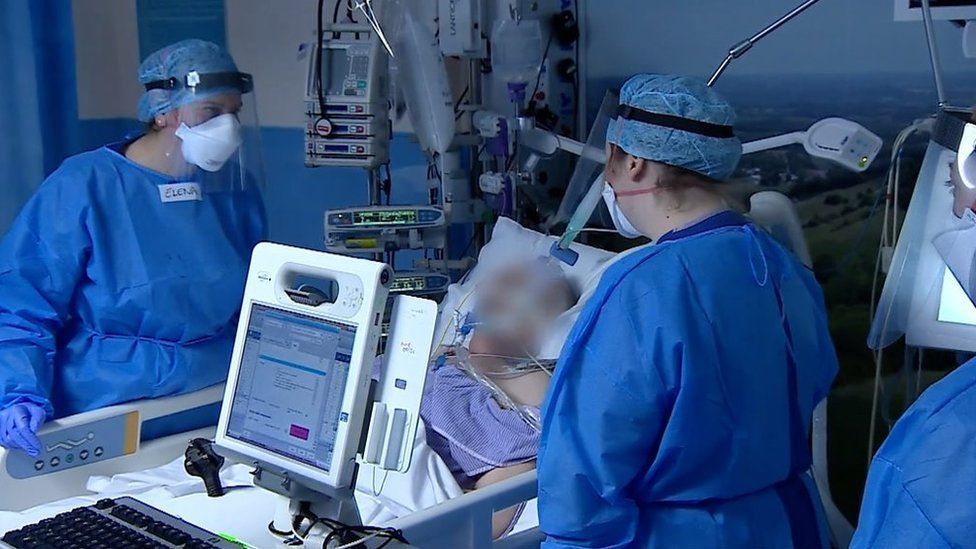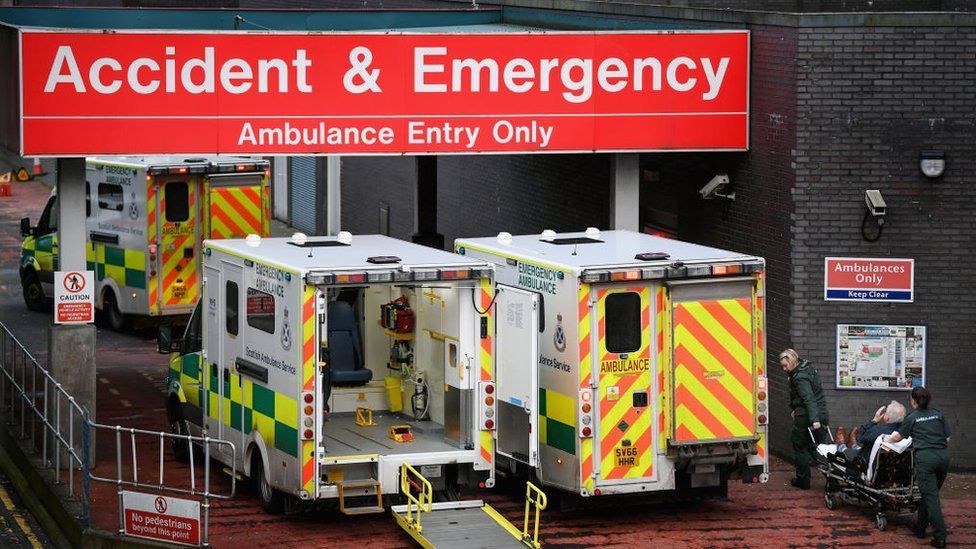
Covid in Scotland: NHS needs 1,000 more acute beds say A&E doctors
The Royal College of Emergency Medicine said many A&E units were struggling because there are too few beds available elsewhere in hospitals.
Scottish ministers will later update Holyrood on plans to bolster the NHS.
Health Secretary Humza Yousaf said £12m of extra funds had already been announced for non-Covid emergency care.
In BBC interview, John Thomson, vice-president for the Royal College of Emergency Medicine in Scotland, and a consultant in emergency medicine, said there was currently an "unrelenting pressure on our emergency departments" but that Covid was only one part of the problem.
He said: "We have patients who are waiting in emergency departments who should be receiving the next stage of their care elsewhere in the system.
"The college estimates that we're approximately 1,000 beds short nationally and that would certainly help alleviate some of the issues relating to what we call exit block, which are patients waiting to move from the emergency department when they no longer require care within the department.
"Emergency departments can be very busy and function very smoothly when we have no exit block. Conversely when we've seen significant exit block, and long wait for patients to move to beds, then we can have relatively few patients in A&E and struggle to provide the right level of care that we would want to."
 John Thomson, vice-president for the Royal College of Emergency Medicine
in Scotland, said it was "too simplistic" to say Covid was entirely to
blame for the pressures facing the NHS
John Thomson, vice-president for the Royal College of Emergency Medicine
in Scotland, said it was "too simplistic" to say Covid was entirely to
blame for the pressures facing the NHS
The Scottish government has asked the MoD for military assistance for the under-pressure ambulance service and the health secretary is expected to give more details of the plan at Holyrood later.
Mr Thomson said increasing the number of beds would go "a long way to alleviating that problem".
He added: "The sole reason ambulances have to await to offload is there is no space in the emergency departments for that patient to go."
Before the Covid pandemic, the average daily number of beds which were staffed and available for patients for acute specialties in Scotland was about 13,000.
According to Public Health Scotland, the number has been going down for many years in line with evolving models of healthcare provision which aims to reduce the frequency and duration of hospital admissions.

Mr Yousaf said: "We announced £12m in additional funding to boards to support non-Covid emergency care and put measures in place to reduce waiting times for urgent or emergency treatment, with a focus on boosting available beds and supported by record NHS staffing levels.
"The Covid pandemic has inevitably affected A&E attendance and the pressure is being felt across the UK. Scotland's core A&E departments have outperformed those in the rest of the UK for more than six years.
"Weekly performance is impacted due to a range of challenges including high attendances, staffing pressures due to isolation and annual leave and the continued requirement for infection control precautions that is affecting the time people need to spend in A&E. This is combined with increased levels of people attending A&E who are much sicker and require higher levels of care."











